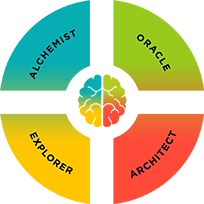Video Version
Text Version
Total Reading Time: 3 minutes.
Being Empathetic is More Than Just Putting Ourselves in Another’s Shoes
There were some really interesting findings recently published in the journal of cognitive enhancement about empathy. Now empathy, of course, is the ability to understand someone else’s world. To feel and understand why they feel the way they feel. To take our feet and put them in their shoes. To put ourselves in their body, in their mind, and understand how they feel — right?
Well, you would assume the way to do that is to just get really good at cultivating the skill of placing ourselves in someone else’s personal situation. To better understand who they are and why they suffer and why they have these shortcomings.
Well, that’s not exactly the case…
Here Are The Results
Something very counter-intuitive happened in this latest study. These 161 participants aged 20 to 55 were put through a process of self-awareness. They were asked to take a look at the various parts of their mind.
Now as you may know we have various parts of our mind like the inner child or the conscious mind, but also the subconscious and the unconscious parts of our mind.
The more these participants were able to unravel and look beyond just the conscious parts of their mind and better understand why they do what they do, who they are, why they develop the habits that they did, the deeper they went into self-awareness and self-knowledge.
The deeper that they went was directly correlated to how much they could empathize with other people’s life situation.
Why is That?
What is empathy, really?
It’s the ability to say if I was that person, if I had that life, if I had those parents, if I went through that situation, all the positive and negative combined together create a person’s life. This results in the decisions and the things that they do in their life.
If we could better understand that, we would realize that we would do the exact same thing if we had that life. If we had those parents, if we had that upbringing we would do the exact same thing.
In a nutshell, that’s empathy.
I think this is a beautiful study and a beautiful understanding because by being able to simply take time to understand ourselves, we can make the world a better place by empathizing and understanding other people — and it’s not that hard to do.
So why not get started? Here’s a great example of how empathy can change your life.

Photo credit: Shoes — CC license



